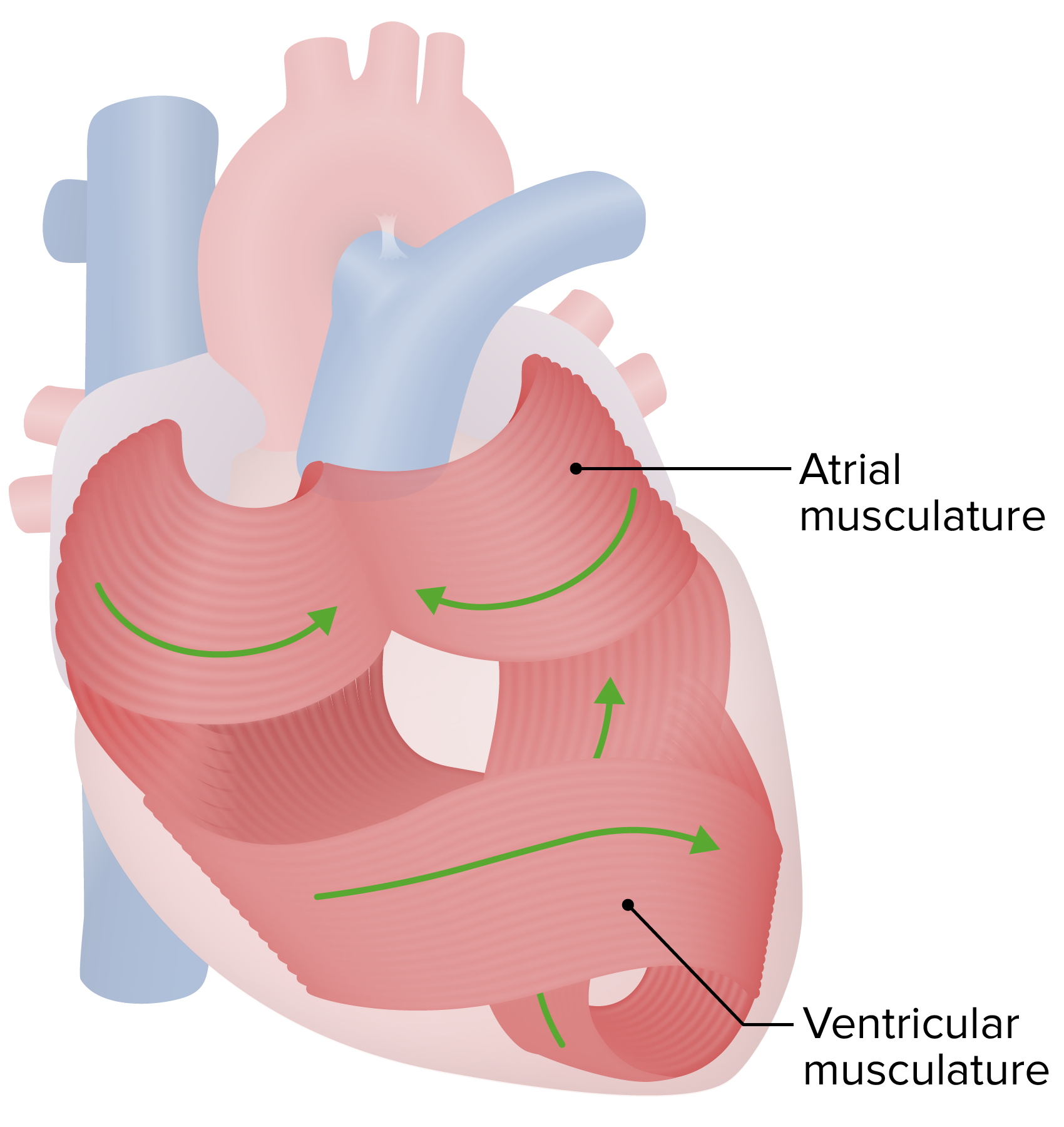Playlist
Show Playlist
Hide Playlist
Influence on Pacemaker Activity – Heart Rate and Electricity
-
Slides Heart Rate and Electricity.pdf
-
Download Lecture Overview
00:01 Now, we have pacemaker activity. 00:05 We talked about the most important things. 00:07 That was how the nerves control the heart rate. 00:10 Let's talk about a couple other things that control heart rate because it's not only about the nerves, although it’s mainly about the nerves. 00:17 It’s not only about the nerves. 00:19 There are a few hormones that can affect heart rate, such as you have a high amount of thyroid hormone. 00:25 So, that's T3, T4 in a hyperthyroid condition. 00:30 You have an increase in heart rate. 00:32 If you have low thyroid hormones, T3 and T4, you have a low heart rate. 00:39 Catecholamines can increase heart rate. 00:42 Now, what do we mean by catecholamines. 00:44 Catecholamines is a broad term that we use for epinephrine and norepinephrine. 00:50 Now, these are ones that are circulating around in the body, not necessarily what is released by the nerves that will bind directly to the SA node. 01:01 So, these are circulating hormones traveling around in the blood, traveling around in the blood. 01:07 We are mainly talking about epinephrine, norepinephrine or adrenaline and noradrenaline. 01:13 Those increase heart rate. 01:17 We have a few ions that also can change heart rate. 01:21 Potassium is probably our biggest one we want to think about. 01:24 If potassium levels are high, heart rates are a little bit lower. 01:27 If potassium levels are lower, heart rate is higher. 01:30 So, they kind of work in an inverse relationship between potassium and heart rate. 01:35 Why this might occur? Think of how that potassium changes resting membrane potential. 01:42 So, if you have a lower resting membrane potential versus a higher resting membrane potential, that's going to affect the speed at which or the distance that phase 4 will reach threshold. 01:56 A couple other things that affect heart rate. 01:58 Ischemia is a big one. 02:00 So, what is ischemia? Ischemia is the decrease in blood flow to a certain spot. 02:06 So, this is making it hypoxic. 02:09 It doesn't have enough oxygen. 02:10 So, what – when can this happen? If you think about it, how about coronary artery disease, If you think about it, how about coronary artery disease, a disease in which there's a decreased level of blood flow to a certain spot of the heart. 02:20 If it’s severe enough, you might cause a myocardial infarction or a heart attack. 02:25 But if it's just minor in nature, it's ischemic. 02:29 Sometimes it can cause angina or chest pain, but in this case, we’re talking about just a small decrease in blood flow and a small decrease in the amount of oxygen that is delivered. 02:40 So, hypoxic. 02:42 In this condition, there's a decrease in heart rate and this works through a special potassium channel called a KATP channel. 02:51 So, it's not the same channel that was involved for a normal heart rate, in which we had a transient potassium or a potassium kind of occurring that happened during the repolarization process. 03:05 This is opening up a whole new channel that wasn't opened up during normal action potential. 03:11 And, of course, especially as a physician, you have a lot of choices in how else you might be able to change heart rate. 03:19 Beside the nerves, besides the hormones, besides clinical conditions such as ischemia, there are a lot of different drugs. 03:26 You have four different classes of antiarrhythmic drugs. 03:30 You have calcium channel blockers. 03:32 You have beta-adrenergic agonists and antagonists. 03:36 The one you hear about most often is called a beta blocker. 03:40 What a beta blocker is, is blocking that beta-1 adrenergic response, so you have less of an increase in heart rate when the sympathetic nervous system is engaged. 03:50 And then you also have drugs like digoxin, which helps with contractility, and even though it has the heart beat harder, it also slows it down.
About the Lecture
The lecture Influence on Pacemaker Activity – Heart Rate and Electricity by Thad Wilson, PhD is from the course Cardiac Physiology.
Included Quiz Questions
Which of the following will most likely lead to an increase in heart rate?
- Increase in epinephrine
- Hyperkalemia
- Hypothyroidism
- Decrease in all catecholamines
Which of the following decreases the heart rate?
- Low levels of thyroid hormones
- High T3
- Noradrenaline
- Adrenaline
- Hypokalemia
Which of the following drug classes can increase the heart rate?
- Adrenergic agonists
- Beta blockers
- Calcium channel blockers
- Digoxin
Customer reviews
5,0 of 5 stars
| 5 Stars |
|
5 |
| 4 Stars |
|
0 |
| 3 Stars |
|
0 |
| 2 Stars |
|
0 |
| 1 Star |
|
0 |




